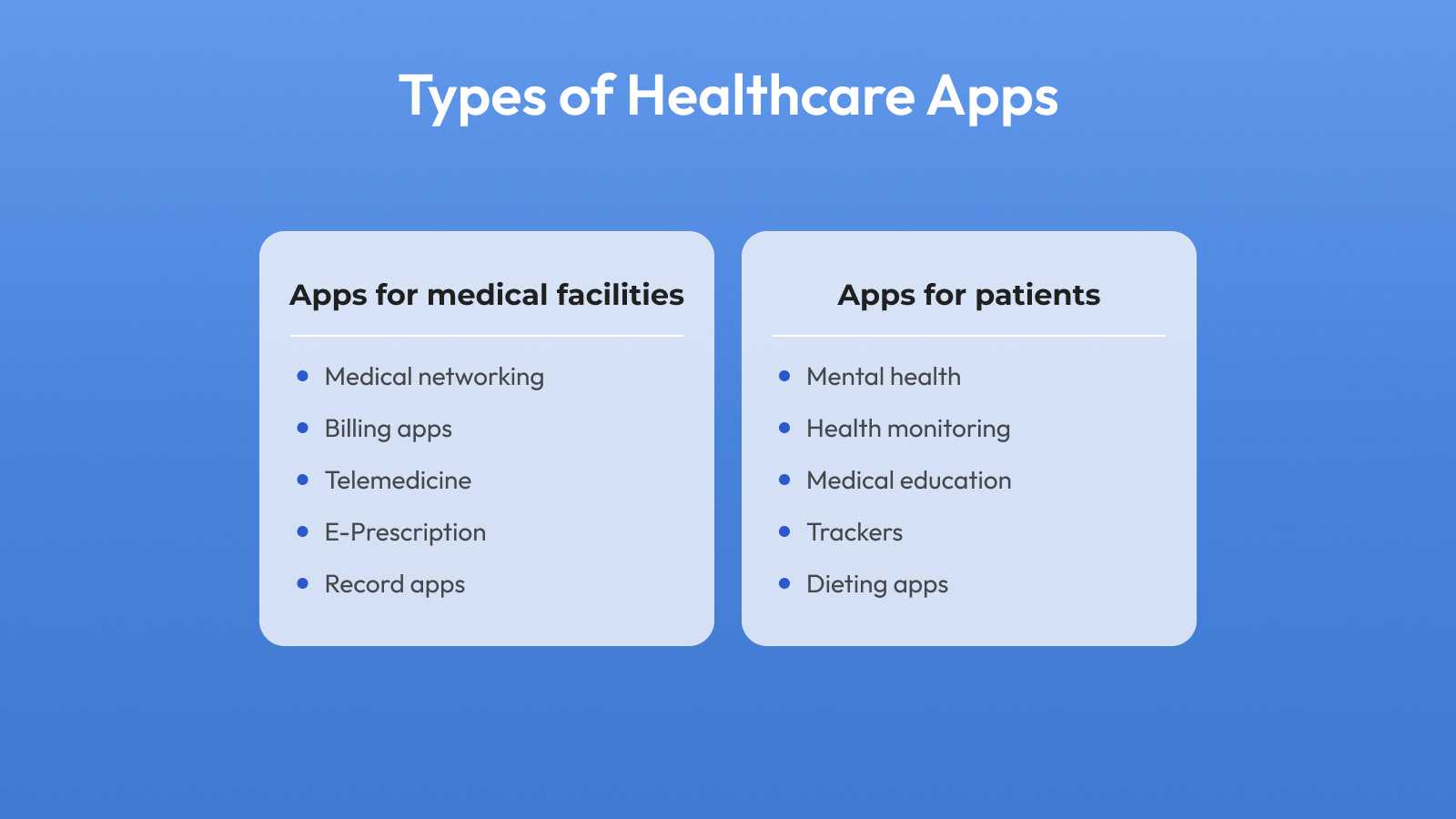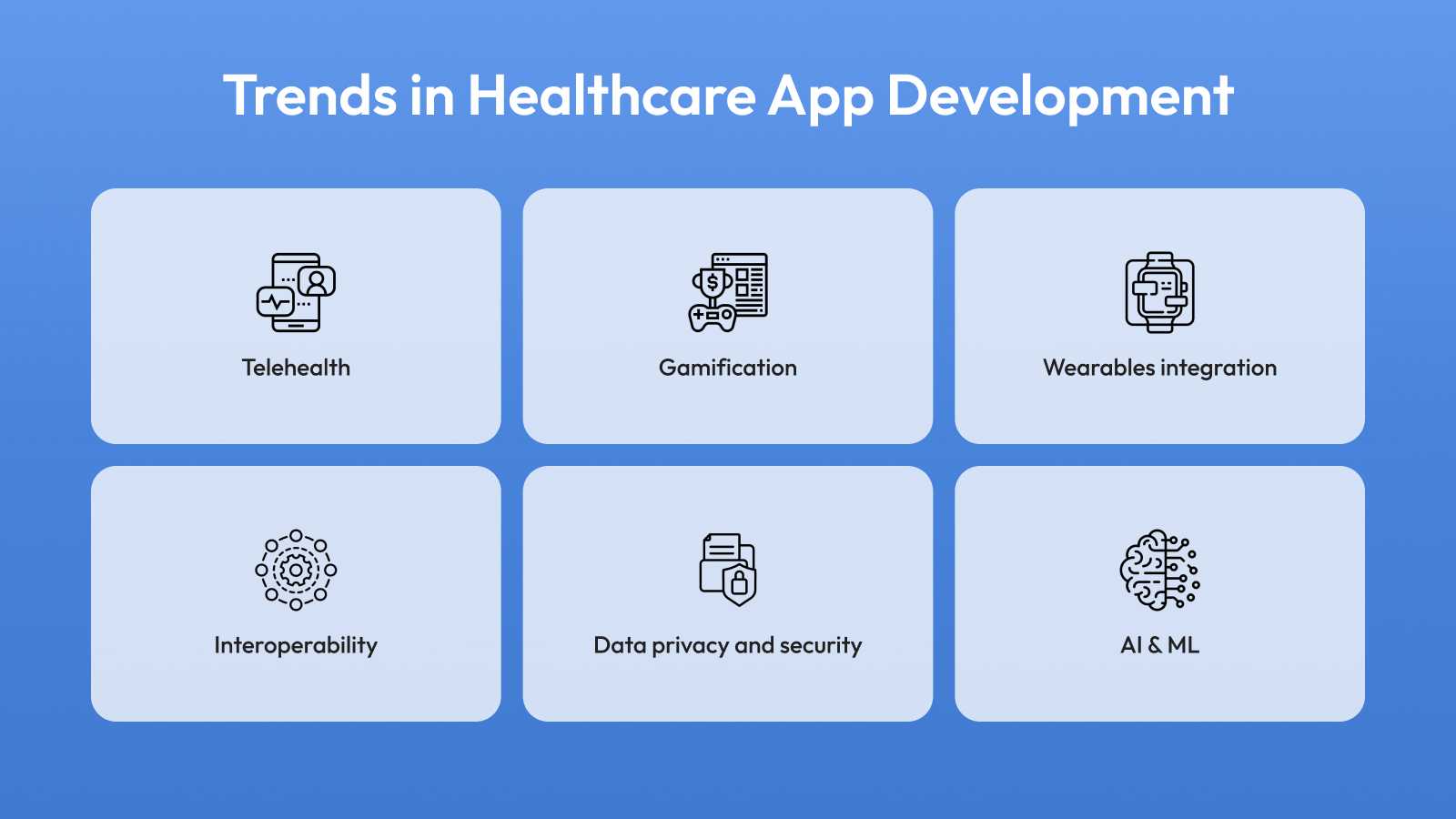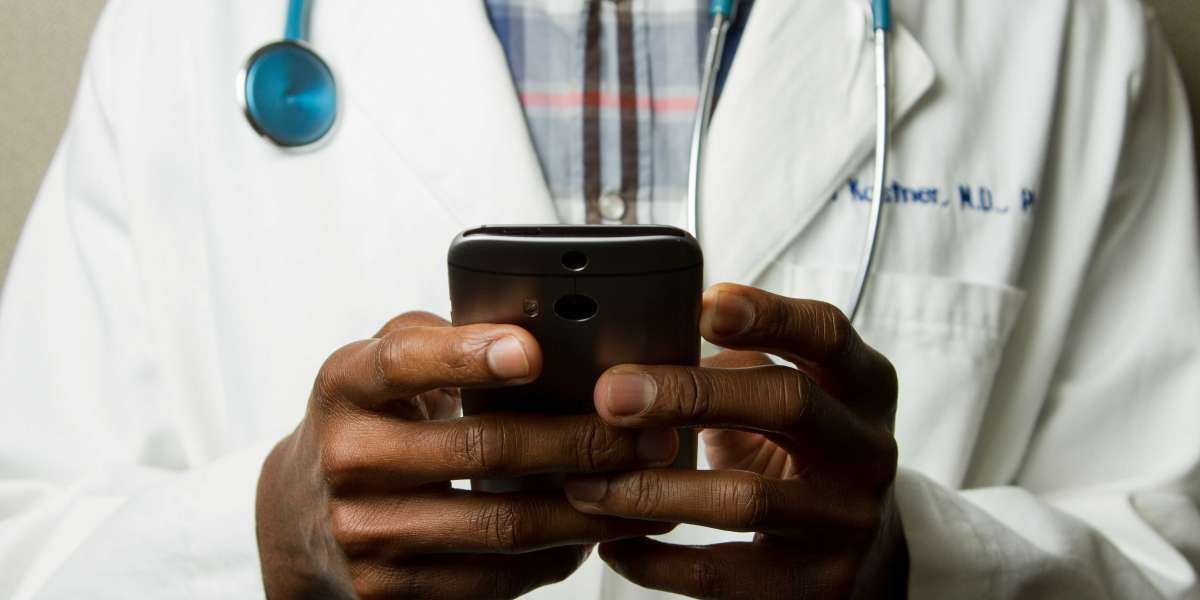Healthcare Application Development: All You Should Consider in 2024
The rapidly expanding area of healthcare application development has the potential to completely change how we get and use healthcare services. Healthcare apps are popularized with patients and healthcare professionals as technology develops and permeates more aspects of our everyday life.
We’ll describe the fundamentals of what you should know to start the healthcare application development process for your medical facility. Dive into the intricacies of health app development with our post!
Why Healthcare App is Essential For Your Business
Healthcare appsare mobile applications designed to empower patients and improve healthcare delivery. They can serve various purposes, from appointment scheduling and medication reminders to tracking health vitals and connecting with doctors virtually. By providing convenient tools and information, healthcare apps aim to promote better self-management, enhance communication, and ultimately contribute to a healthier patient self.
This kind of apps leverages the power of smartphones and tablets to provide users with a convenient way to manage their health and well-being. This medical software comes in a wide variety, from appointment scheduling and medication reminders to fitness trackers and tools for chronic disease management. Such solutions can connect patients directly with healthcare providers, allowing for secure communication, virtual consultations, and remote monitoring of vital signs.
The major health app typesare the following:

The Major Benefits Of Healthcare App Development
Healthcare mobile apps improve efficiency, accessibility, and overall healthcare experiences for both providers and users. Let’s look at other benefits they can bring.
Health application development enriches the healthcare providers’ experience with the following advantages:
- Streamlined data management. Enables efficient organization of patient data, appointments, and treatment plans.
- Improved healthcare delivery. Enhances resource allocation and reduces patient wait times.
- Seamless communication. Facilitates collaboration among healthcare professionals for better decision-making.
- Real-time data access. Provides instant access to critical information for prompt decision-making.
- Remote monitoring: Allows continuous care and prompt intervention in emergencies.
The patients and general users can take the following advantages:
- Convenient information access. Health apps allow easy access to medical info, appointments, and test results, boosting healthcare resource accessibility.
- Improved care quality. Automated features enable tailored health plans, enhancing care quality.
- Medication management. Apps include reminders and tracking, promoting medication adherence.
- Accessible medical services. Apps enable remote consultations, ensuring medical advice accessibility.
- Health monitoring. Apps track wellness, offering insights into fitness, nutrition, and lifestyle choices.
The Core Functionality Set You Should Implement Into Your Healthcare Application
The first step in developing a robust and viable healthcare app is to design a Minimum Viable Product (MVP), which saves time and money by testing your concept, verifying assumptions, and obtaining user input. Moreover, it can help you optimize your budget to spend wisely for healthcare app development cost.
Let’s find out the health app MVP functionality.
User authorization and profile. Secure user authentication is crucial in healthcare app development. It ensures that only authorized users access sensitive information. This can be done through two-factor authentication or biometric authentication. Moreover, the app needs a user profile with personal information, photo, and medical history.
Scheduling appointments. This feature allows physicians to schedule appointments and patients to book appointments quickly based on the doctor's availability.
Search and filtering. Medical mobile apps can simplify the process of finding a physician by allowing users to filter doctors based on criteria such as specialization, experience, or appointment cost.
Physician reviews and ratings. It simplifies decision-making by allowing users to consider reviews and ratings from past clients before contacting a physician.
Payment. The platform can benefit everyone by implementing online payments through a payment gateway (e.g., PayPal, Stripe, or Braintree). All parties can benefit from this feature, with users paying for the doctor's services and the platform holder receiving a commission. It is also recommended to allow direct payment from a patient's credit card for added convenience.
Chat with physicians. In-app chat enables patients to communicate with a doctor when they can't see each other. Patients can send important files, while doctors can provide clarifications on treatment or send prescriptions. Medical mobile app development can enhance this experience.
Trends of Healthcare App Development
The landscape of healthcare has been significantly influenced by the rise of healthcare app development. These apps have revolutionized how patients access medical information, manage their health, and interact with healthcare providers. Remaining ahead of the curve in this ever expanding business requires an understanding of the shifting trends in healthcare app development.

Wrapping Up
We’ve told you only the basics about healthcare app development. To know more about it, you can apply to the skilled health app building vendor. The vendor’s specialists will give you necessary consultations to the tech questions that disturb you, and provide you with an app that will boost your healthcare establishment’s internal processes and enhance your profits.



